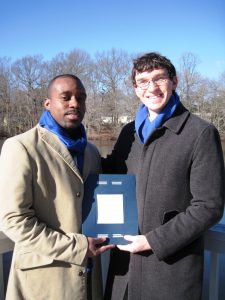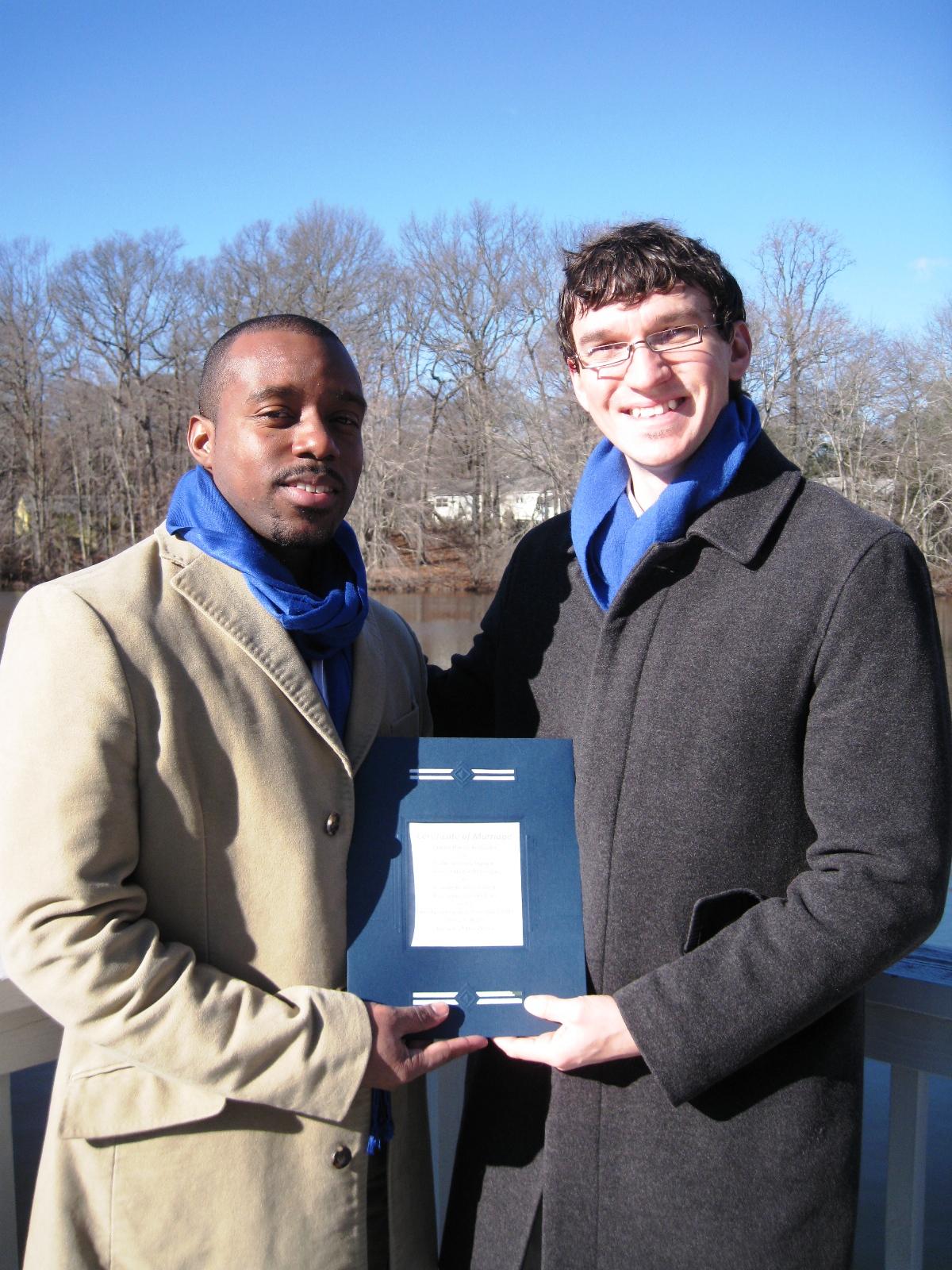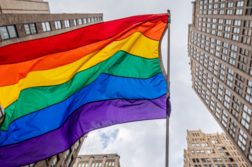ON THE MORNING that my husband Joe and I got married, the sun shone warmly on our chilly necks, absorbing the bite of the low, steady breeze floating across the pond behind our condo. Two swans drifted on the surface of the water as we took our positions on the dock with Mary, the justice of the peace. She opened a blue, laser-cut portfolio containing our vows, the text of our short ceremony, and a commemorative marriage certificate, all printed on elegant parchment paper. The whole thing lasted less than five minutes, but it felt monumental. Joe and I were officially married—and we had the paperwork to prove it.

For the next two years, I lived a life of legal limbo. When we got married in 2011, my husband and I enjoyed the rights and benefits of marriage under the laws of our home state of Connecticut, but our marriage was not recognized by the federal government under the Defense of Marriage Act (DOMA), which was still the law of the land. We filed state taxes jointly, but separate for federal. We were married, but not really. We lived in a kind of limbo.
As a non-American navigating the tricky U.S. immigration system, I feared that I might be forced to return to my native Trinidad, or that Joe and I would be forced to live in exile outside the U.S. We personally knew of several other binational couples who’d faced that very fate. In most cases of binational marriage, it can be fairly straightforward for the American to petition for his or her spouse to live permanently in the U.S. But not for us. DOMA stripped Joe of his right to sponsor me, as his spouse, for permanent residence in the U.S.
DOMA cast a cloud of uncertainty over our lives, making it almost impossible for us to plan things that would be a matter of course for opposite-sex couples, such as whether we should replace the aging furnace in our home or adopt a puppy. These may be mundane concerns, but being denied the right to make the simplest decisions became a somber reminder of how powerless we were to solve the more important problems, like how we were going to stay together in this country.
We were among the lucky ones. I managed to find a way to extend my visa as a graduate student for another two years. Then, in 2013, the Supreme Court found DOMA unconstitutional in a 5-4 ruling, giving federal marriage benefits to millions of gay and lesbian couples and allowing Joe to sponsor me for a green card. The morning I heard the news about the ruling, for the first time since getting married to Joe—possibly since leaving Trinidad at age eighteen—I began to feel at home in America.
Joe and I finally found ourselves free of the flux and uncertainty that had clouded our lives for so long. We were a family, and as long as Joe woke up beside me, wherever we lived would be home.
Yet today my home feels like it’s under attack. In a socio-political climate that seems intent on dialing back every inch of progress made over the last eight years, many of us are facing one very troubling question: what will happen to us now?
Two years after the DOMA ruling, the Supreme Court made another historic 5-4 ruling, this time making marriage equality a reality throughout the U.S. I remember exactly where I was when I heard the news. Joe and I were on a ferry to the village of Cherry Grove on Fire Island, a dreamy refuge off the coast of Long Island, a separate universe where everyone is assumed to be non-heterosexual. Joe sat next to me on the top deck of the ferry and flashed the screen of his phone for me to see. “We won,” he said.
We held each other’s hands in silence the rest of the way. I thought about my cousin Natalie in Georgia, who had traveled to Connecticut with her fiancée to get married a year after DOMA was struck down. They were planning to start a family, and they wanted to “do it right.” After a small ceremony, they flew back to their lives in Georgia, where Natalie was not even allowed to take parental leave to be with her wife during the birth of their child.
This ruling was huge for them. Natalie would finally be allowed to add her wife and child to her medical insurance plan. It seems simple enough, but it’s the little things that make all the difference. Marriage equality is historic and monumental and life-changing and paradigm-shifting, but it also just allows everyday people to lead everyday lives in peace.
It is amazing to think of how far we’ve come in the struggle for equality, but devastating to consider how quickly that progress could be undone if the balance of the Supreme Court tilted even slightly. A 5-4 ruling can very quickly swing the other way. Our rights are inalienable, but they are not invulnerable. I am proud of what America stands for, and I believe it is our duty to be ever vigilant in the face of hatred and backlash. We owe it to ourselves and to the generations of Americans to come.
 Colin Hosten’s work has appeared in such outlets as The Essay Review, Essay Daily, OUT Magazine, and the Brevity blog. He writes, edits, and teaches in Connecticut, where he lives with his husband and their dog.
Colin Hosten’s work has appeared in such outlets as The Essay Review, Essay Daily, OUT Magazine, and the Brevity blog. He writes, edits, and teaches in Connecticut, where he lives with his husband and their dog.






